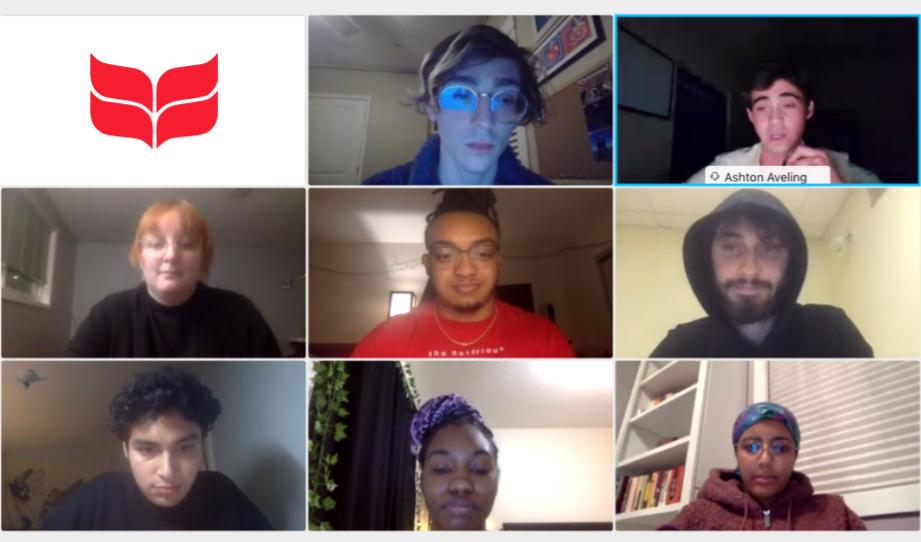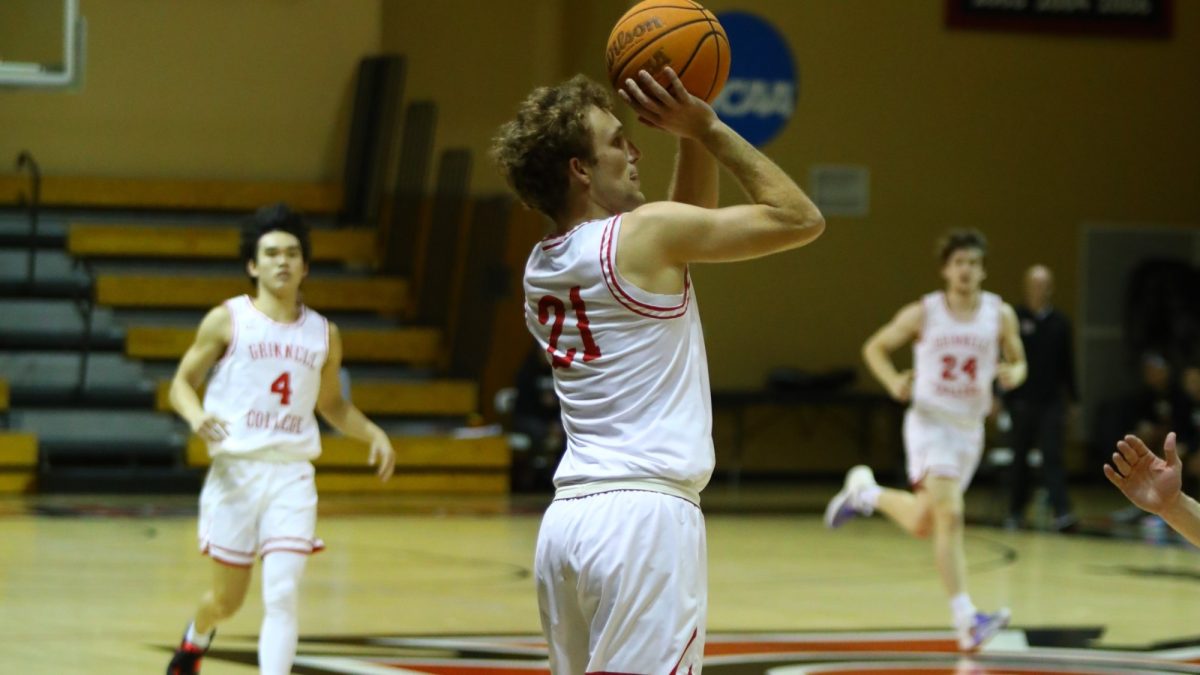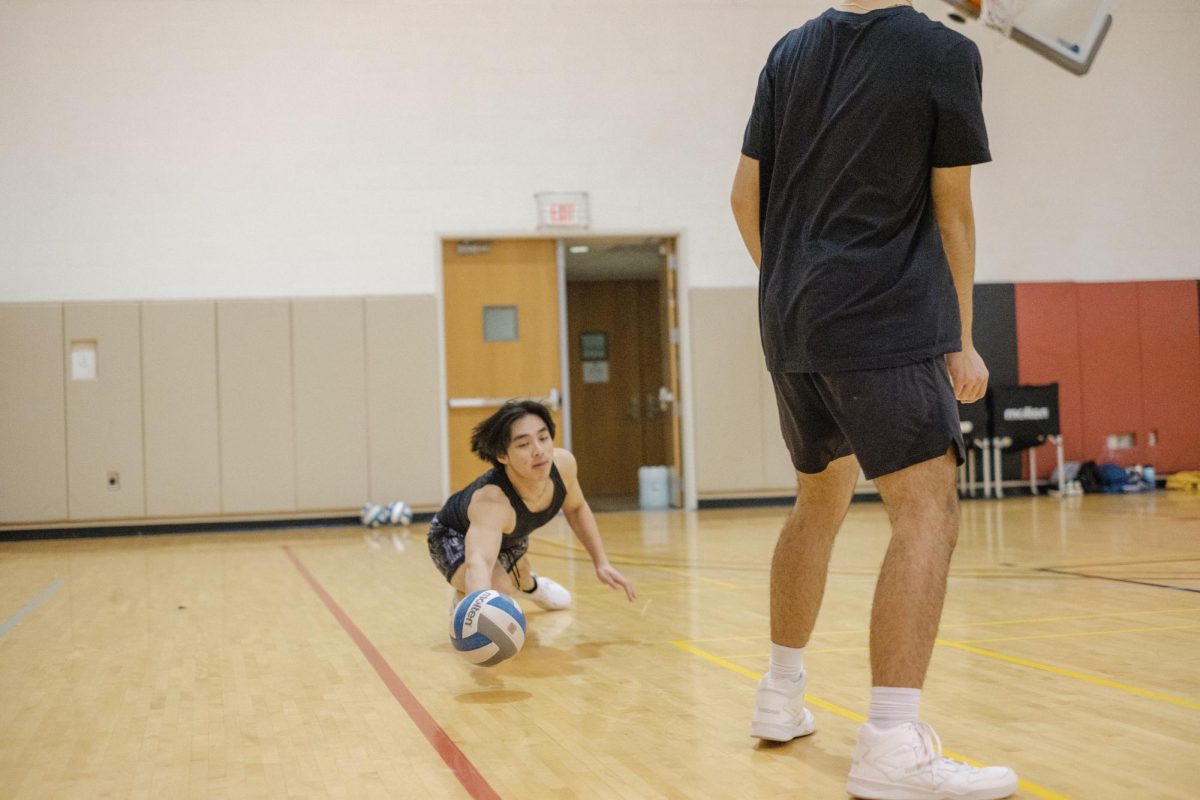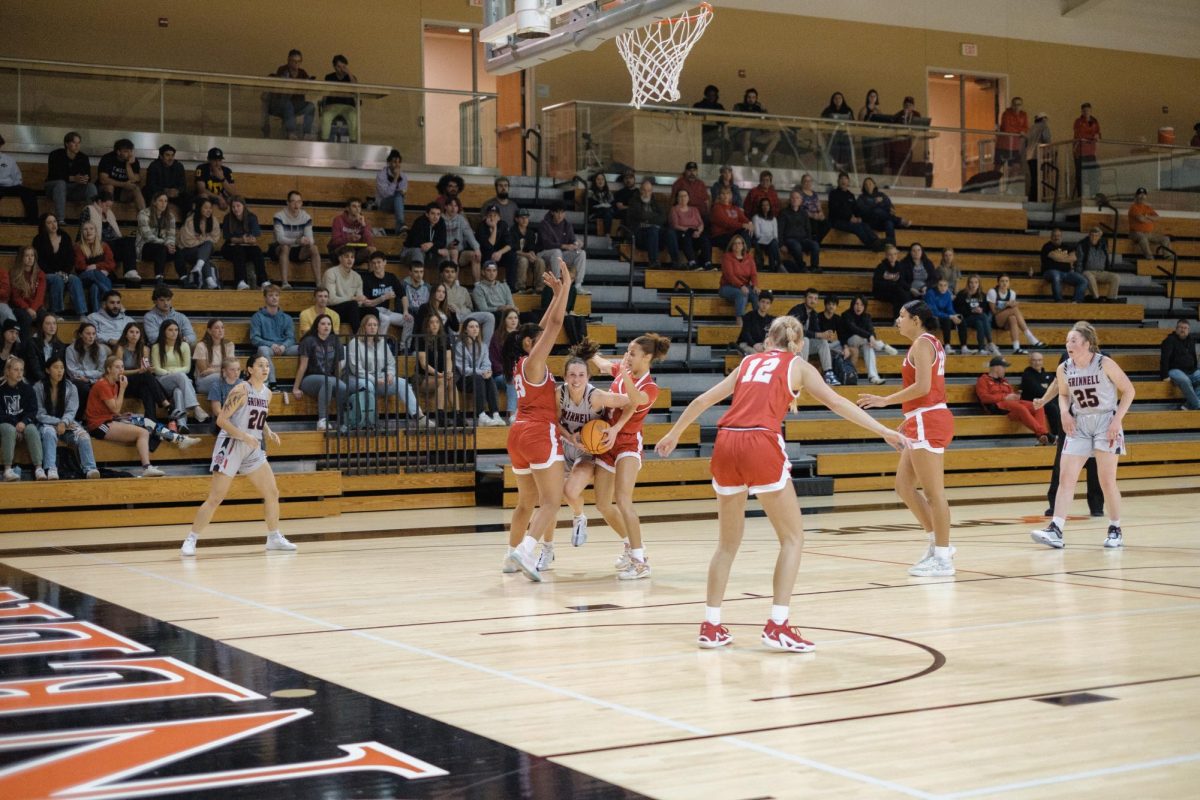It wasn’t the first SGA event to be held over WebEx, not by a long shot, but Thursday night marked the first time a new slate of presidential and vice-presidential candidates has been introduced entirely virtually to the Grinnell student body.
For over an hour, candidates Fernando Villatoro (running for president, unopposed), Andy Kenley and Loyal Terry (for vice president of student affairs), and Ashton Aveling and Makaela Burch (for vice president of academic affairs), all `22, outlined their platforms and answered questions sent in by students. Minus any pandemic-specific items, the objectives described would be familiar to anyone who’s attended an SGA candidate forum in the past: improving transparency, bolstering anti-racism efforts, amplifying the voices of students from marginalized groups and fostering accountability. But each candidate had different plans for how exactly they’d be the ones to achieve these goals that have for so long remained unsolved issues in the eyes of students.
Villatoro began with a general focus – an intention of “attacking global issues that I’ve seen throughout my time at Grinnell” – and then moved to more specific line items. Completing and ratifying a new SGA constitution was a frequent feature of his answers; he argues that the old constitution is outdated and contributes to the continuing issues of transparency and low student engagement in SGA (student participation in SGA elections tends to be low, and this year the deadline to declare as a candidate was extended due to a lack of initial responses).
Meanwhile, Kenley and Terry spoke specifically about improving direct conversation with students and holding professors and students accountable for their behaviors and responsibilities.
“We can hold those people accountable who’ve constantly been getting away with those microaggressions seems small to them but can definitely be traumatizing to us,” Terry said.
We can hold those people accountable who’ve constantly been getting away with those microaggressions seems small to them but can definitely be traumatizing to us. – Loyal Terry
He added that he’d also like to see greater accountability for elected members of SGA in attending meetings and performing their duties. “If you’re not doing that … it would be a waste of our time, waste of your time and a waste of our constituency’s time, the student body,” he said. Terry wants to increase SGA’s social media presence, arguing that it would give students easier access to their representatives.
Kenley listed a few specific goals he has for making the Grinnell student experience more equitable, including permanently making SAT/ACT score submission optional for prospective students, rejoining the Posse program and researching and joining other similar programs, and building greater communication between students and professors. He also cited the lack of student engagement with SGA and said he wants to work on “getting to the bottom of why people feel as though they can’t talk to us.”
“The rest of the 1,680 students who are not in SGA don’t understand the power that we have,” Kenley said.
Openness and bureaucratic reorganization of SGA was also a major feature of the VPAA candidates’ talking points.
Aveling, speaking in rapid-fire calls to action reminiscent of the standard messaging style of the Union of Grinnell Student Dining Workers, for which he has worked publicly in the past, made a case for decentralization of SGA. He argued that there were too few panelists in the forum itself for the number of students they’d be representing and said he would like to see several of the roles in SGA split into two or more new positions, including the diversity and outreach coordinator, student services coordinator and treasurer.
The rest of the 1,680 students who are not in SGA don’t understand the power that we have. – Andy Kenley
Aveling argued that the current, smaller number of SGA members prevents elected officials from carrying out all their duties. “I don’t know about you all, but I haven’t gotten any many minutes for my senators this semester. And that’s something that’s supposed to be happening equally in the Constitution,” he said. “The President is supposed to already be doing a semesterly state of SGA address. But that also hasn’t been happening.”
“I think the problem here boils down to people being massively, massively, massively overworked. SGA has been systemically understaffed forever. … It really does boil down to hiring enough people to do the work, because it has not been done,” he said.
Meanwhile, Burch spoke to the pressure placed on students during the pandemic and discussed her plan to create a more equitable and flexible educational environment both during and after the remote period. “I think there’s a big gap between … professors who have done their best to make sure that students are being supported at this time, but there’s also some faculty members who haven’t been trying at all,” she said.
I think there’s a big gap between … professors who have done their best to make sure that students are being supported at this time, but there’s also some faculty members who haven’t been trying at all. – Makaela Burch
Burch intends to work with the College academic administration to look closely at major and concentration requirements for students in the context of the pandemic, with the awareness that some students are now struggling to finish majors or concentrations due to lacking a specific required course. After the pandemic has abated, too, Burch said she’d like to see a more flexible approach to major requirements, giving students more control over their own courses of study.
All four candidates discussed the need for greater SGA involvement in faculty and administrative meetings as well, in addition to the overarching themes of equity and accountability.
Terry ended his point on that discussion by saying that a starting point for student representation in faculty decisions will be establishing SGA members as being independent adults as well as students: “We’re not kids. … I don’t need you to hold my hand, I need you to walk with me.”
Voting for the SGA election opened on Feb. 19 and ends on Feb. 20 at 11:59 pm. Results of the election will be released on Feb. 21. Currently enrolled Grinnell College students can cast their votes here.
Editor’s note 2/20/2021: An earlier version of this article indicated that Aveling had specifically criticized SGA President Lana Katai ’21 rather than commenting on all recent SGA presidents for not giving a semesterly state of SGA address. Based on a clarification request from Aveling, the article has been updated with the exact quote of the statement in question.





























































